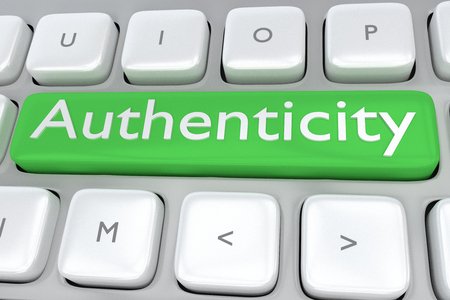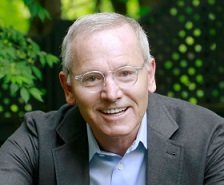New Year's Resolution—Become A Revolutionist
A revolutionist is someone who forces change.
Having spent the last six years studying and writing and speaking about workplace dynamics I have come to understand better than most what is at the core of the raw negative emotions that threaten democracy and all that it represents. What I have discovered is how uncivilized we have become, not just at work, but in almost every aspect of our lives.
What I have also discovered is that it is in our human nature to shift attitudes, and behaviors in reaction to what is happening around us and what is being done to us, by doing it to others and exposing our inherent biases. This is becoming a major societal shift where basic fundamental values and human rights are under siege and leading us into a more barbaric world.
Rarely a day goes by when there is not a story in the media about abuse of power, inappropriate behavior, corruption and greed in every segment of our society, worldwide. Whether it is business, industry, government, military, police, religion, social services, sports, unions, the media, entertainment; non have been immune. Combine this with the unnecessary stresses that most people experience at work, it is understandable that people are disgruntled, cynical, skeptical, frustrated, angry and afraid.
Given the rise of extremism and intolerance because of this it has become hard to imagine how all of all of this negative energy can be reversed. To reverse this requires nothing short of a revolution. As revolutions are occurring for evil, revolutions have and can occur for good.
Personally to reverse this I am inspired by the writing of Mahatma Gandhi: "It is possible for a single individual to defy the whole might of an unjust empire to save his honor, his religion, his soul, and lay the foundation for that empire's fall or its regeneration."
As becoming a revolutionist for good requires a strong sense of self, this article is a first in a series on becoming a better and stronger person who can force change.
This series called "THE A - B -C's of LEADERSHIP" starts with 'A is for AUTHENTICITY'
 A is for AUTHENTICITY
A is for AUTHENTICITY
"Want to help others? Be yourself. You'll inspire others to muster the courage to be themselves as well." - Kamand Korjouri
Given all of the stories in the media about inappropriate behaviors, corruption, greed and abuse in all aspects of our society, it is small wonder that people are skeptical of almost everyone they have to deal with. When we reviewed our own experiences over the last decade, the number of people and organizations who have betrayed our trust, far outweighed those who gained it. This exercise caused us to reflect on, whether we were just unlucky in who we had to deal with and believe in, or, is it a phenomenon that is entrenched in the way we learn, interact, work and live. Doing a quick straw poll, what we heard was astoundingly negative and the most common phrase we heard was "I don't know who I can trust anymore".
To better understand the meaning of authenticity, we suggest the reader view it in the context of who is the one person you would follow, go to for advice, divulge sensitive information to, represent you and protect your interests; and then you should understand why you identified the person you did. Also, do you think that others would identify you as that one person and if not, why not? We assert by making this critical assessment you will not only better understand authenticity but more importantly realize how you, by being authentic can positively influence the world around you and in doing so lead a far richer life.
What we have witnessed in the United States election cycle is the inability of most of the candidates to define themselves. What we have also heard loud and clear from the electorate is their desire for an authentic leader.
Regardless of whether we agree with his politics, Bernie Sanders stood out as first amongst equals on authenticity and because of this, has resonated with the people. A USA Today poll showed that Sanders was the least "scary" candidate.
By contrast Hillary Clinton has been in the spotlight for over four decades, yet we hardly know her, perhaps this is because she does not have a strong sense of self and compensates by portraying herself by her professional accomplishments and the positions she has held. Impressive as these credentials are; that is just what they are, credentials verses a definition of character.
Ironically Donald Trump has captured the mood of the electorate and is viewed by many as authentic, likely because he is perceived to 'tell it like it is'. What was largely missing were sufficient challenges by his opponents and the media on Trump's inconsistencies, distortions, slurs, vindictiveness and intolerance for dissenters. Donald Trump is not authentic and the authenticity of his opponents and the media has been diluted because they fear his wrath. Donald Trump should be feared, not for having to endure his wrath, but feared for what he has the potential to do when he becomes the President of the United States.
For over three decades Bill Cosby was a role model for authenticity. Today he is a pathetic example of an evil, perverted, creepy, vindictive fake. The deplorable way he has responded to the allegations of abuse has reinforced how inauthentic he is, a wolf in sheep's clothing.
The biggest challenge for anyone is to convince people to do something or accept a certain position. People who are most successful in doing this have earned respect because of their authenticity. Unfortunately, too many people rely on what they say, the power and control they have, their position in society, their religious affiliation, their personality, their past accomplishments, their academic credentials and their viewpoints on political, social and economic issues to convince people. What all too many people do not grasp is respect. Respect is not automatically vested with tenure, power, control or status.
President Obama in the February 22 - 29, 2016 issue of Time in an eloquent article called "The world I want my daughters to grow up in" wrote: "Those of us in positions of power have to set the example with the way we treat one another - not by viewing those who disagree with us as unpatriotic or motivated my malice, but with a willingness to compromise. We have to listen to those with whom we don't agree...." On this everyone should consider themselves "in positions of power" - as a student, parent, teacher, coworker, boss because we all can influence by who we are.
Authenticity is not genetic or inherited. It is a characteristic that is developed and honed over time, shaped by your beliefs, values and experiences and is in essence who you become. Authenticity is also a combination of all of the characteristics I discuss in my upcoming book, “From Bully to Bull’s-Eye,” and the sum of the parts that makes one genuine, whole and fulfilled.
To be authentic, one must develop a strong sense of self by asking who you really are as a human being, and assessing whether or not you respect yourself. If you fall short on this, others will likely hold the same view of you. It is also likely that your view of others is skewed by how you view yourself.
In testing for authenticity, do you:
- Spontaneously do what is morally and ethically the right thing?
- Steadfastly and consistently uphold and protect your core values and beliefs?
- Tell your family members, friends, associates, subordinates and superiors what you think he or she needs to hear?
- Provide constructive criticism in an open, honest and direct manner?
- Expose wrongdoing?
- Call people out for bad behavior?
- Genuinely compliment others?
- Express genuine gratitude?
- Actively listen?
- Alter your positions or viewpoints based on compelling arguments?
- Understand how others emotionally feel?
- Understand why others feel the way they do?
- Let others know how you emotionally feel?
- Defend and protect those who are wronged?
- Give proper attribution and credit when things go right?
- Take appropriate responsibility when things go wrong?
- Treat people with respect, regardless of background, ethnicity, gender, orientation, social standing and religion?
- Deliver on promises and commitments?
- Prop up people who fall?
- Protect confidentiality?
- Share your good fortune?
- As gracious in defeat as you are in victory?
In December of last year, the late Master Sergeant Roddie Edmonds became the first American soldier to be recognized by Yad Vashem, as a 'Righteous Among the Nations” because he saved many Jewish soldiers in refusing Nazi demands to separate Jews from their fellow brothers, by ordering more than 1,000 Americans to step forward, declaring "We are all Jews here", not wavering even with a pistol to his head, and the captors eventually backed down. What an incredible example of authenticity, particularly in spontaneously doing the morally and ethically the right thing.
[author]About the Author: Andrew Faas is an author, activist, revolutionist, philanthropist and management advisor promoting psychologically healthy, safe and fair workplaces. Before becoming a philanthropist, he led some of Canada's largest corporations for over three decades as a senior executive. He founded the Faas Foundation, which supports non-profit organizations concerned with workplace well-being and other personal health and research endeavors. Currently he is partnering with the Yale Center for Emotional Intelligence on a groundbreaking initiative, Emotion Revolution in the Workplace, which will revolutionize the way organizations operate, leveraging the power of emotional intelligence; and Mental Health America, to help reduce unnecessary stress factors at work and eliminate stigma around a condition that affects one in five adults. [/author]
